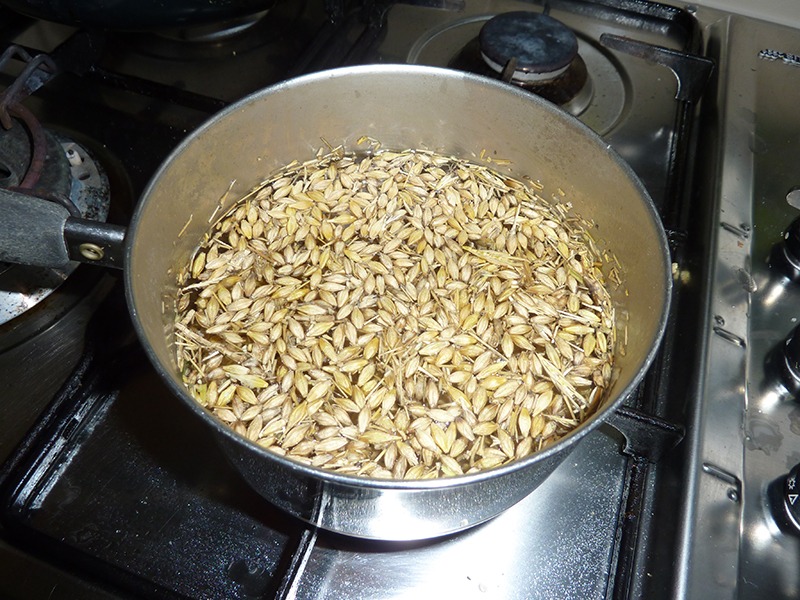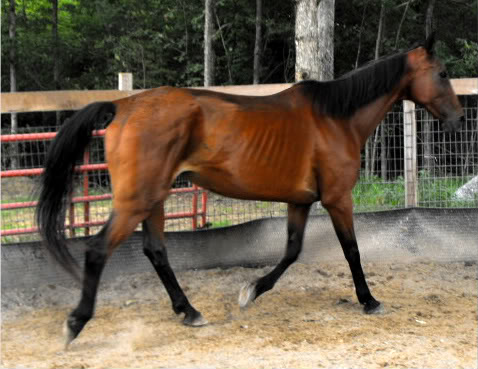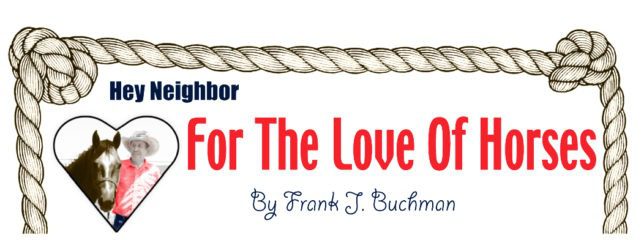“Well, I guess I’d better get supper cooking for Ole Dobbin.”
“There aren’t as many horsemen cooking feed for horses as there used to be with more pelletized feeds and extruded high temperature ration preparations available. But, there can still be advantages to cooking grains for certain horses,” according to Dr. Preston Hickman, veterinarian at the Wichita Equine Center.
The younger generation may not have ever heard of such practices, but it was common among leading trainers of decades gone by. “I’d say more old-time horse trainers today still cook rations and contend it is advantageous to their training programs,” Hickman said.
There are several reasons a horse person might consider cooking rations, according to the veterinarian.

“It will help make feed easier to digest for a horse, especially an older horse, or one with dental problems. Likewise, a sick horse recovering from surgery, an illness or colic, and just a finicky eater will sometimes more readily consume cooked grain,” Hickman said.
Grain that has been cooked has a softer hull, which makes it more digestible for any age of horse, he added.
Actually cooking grains for horses is good for healing, preventing ulcers, and it will help combat dehydration in cold weather. “Some say cooking will even help prevent colic, but I’m but not sure this has actually held up to scrutiny,” Hickman noted.
Oats and barley are the most common feeds that are cooked for horses, but bran, linseed, sugar beets, and even rice are also cooked for horse rations.
While many have never considered it, old bread can be an excellent horse feed, according to Hickman. “Old bread is not cooked, but just another example of how further processed grains have been used for the benefit of certain horse rations,” Hickman inserted.
Weight gain can be more rapid when feeding oats, which tend to heat horses up.
Major horse operations cook grain in large quantities, but rations can be cooked for just a one-horse feeding. Heat rods are available for cooking horse feed in small and large quantities.
Best results are usually with grain allowed to simmer in boiling water, with caution to make sure the ration is stirred and cooled down after the water has been drained off.
“A horse doesn’t usually need to be fed cooked grain but once a day, and often the evening meal is preferred, to allow for preparation time, and the best digestion,” Hickman said.
Boiled grain helps in speeding up weight gain of horses, yet also offers greater bulk than the equivalent dried weight of the same grain.
There can be hazards from over cooking grain creating imbalance of carbohydrates, vitamins, minerals and fat level content.
“Actually, cooking can decrease availability of water soluble vitamins, and caution should be employed to make sure vitamin mineral balance is correct in a diet if cooking is employed,” Hickman explained.
Black’s Veterinary Dictionary offers suggestions for feeding cooked grain.
The horse should be watered before feeding and allowed to drink as much as desired.
Feeding more often is preferable over once a-day-feeding, preferably with only small rations in the morning, and majority of the bulk feed at the last feeding of the day, so the horse can eat at its leisure.
Horses should be given an hour’s time after a full feed before being put to work.
Again, Hickman pointed out that there is never the need to cook pelleted horse feeds. “I think we see less use of the practice of cooking horse grain, as the need has greatly decreased since pelleted feeds are already cooked in the extrusion process,” Hickman said.
However, when a horse will not eat, will not gain weight, is overly thin, appears sick, even does not seem to be performing at a previous level, cooking feed such as oats might be worth trying, according to Hickman.

